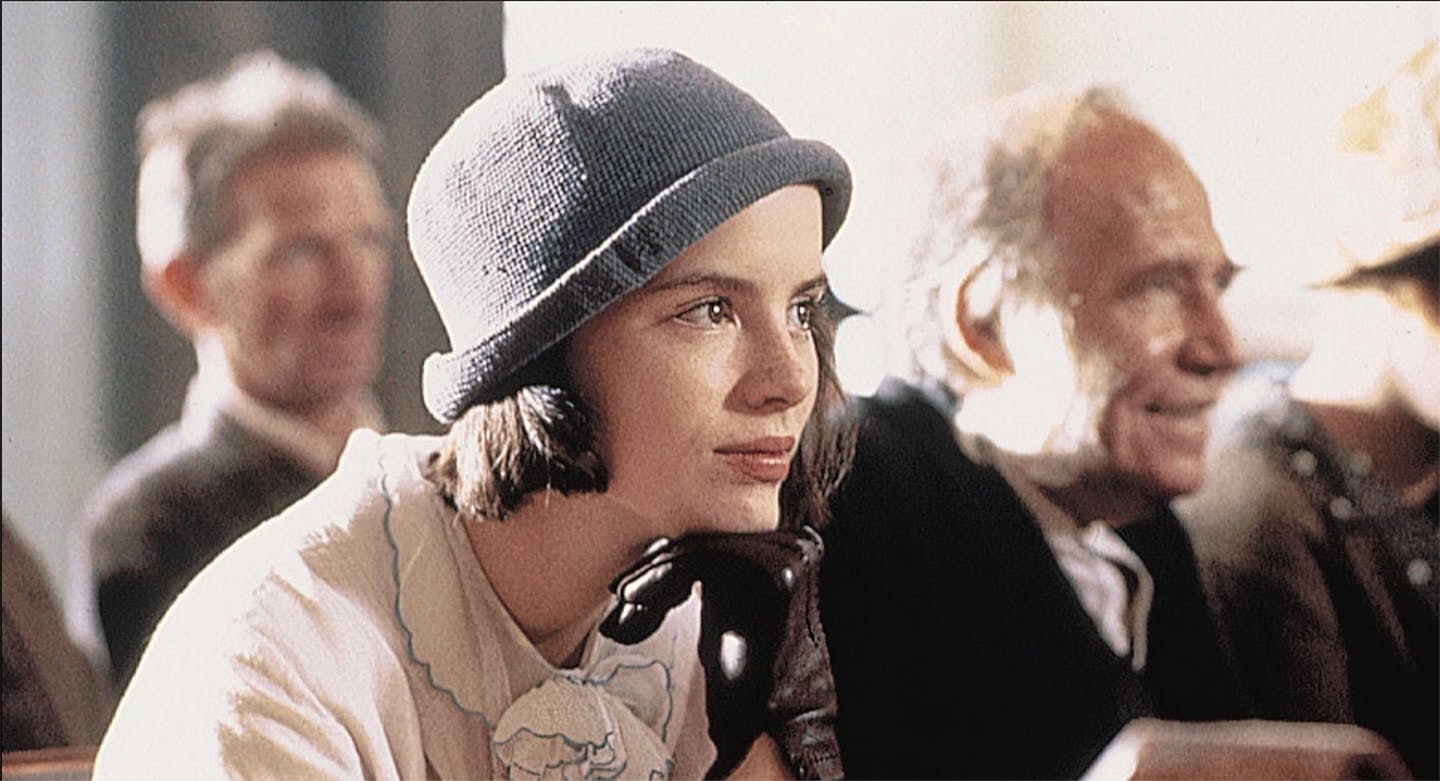 Kate Beckinsale as Flora Poste in Cold Comfort Farm
Kate Beckinsale as Flora Poste in Cold Comfort Farm
Stella Gibbons’s 1932 Cold Comfort Farm brings a sophisticated Londoner to a dim rural outpost — Howling, Sussex, filled with the benighted, the twisted, and the perverse. The encounter between country and city has rarely been done so well.
Newly and of course improbably orphaned, society girl Flora Poste needs relatives on whom she can sponge while she gathers material for a novel.
They must be eccentric and with enough space that they can provide a room of her own.
The echo of Virginia Woolf might also be a stab. Schooled by Oscar Wilde, a whole cohort of smart and funny writers grew up between the wars — Evelyn Waugh, Nancy Mitford — with their edges finely honed. They challenged the “clever” literary tradition as pompous, and brought a superfine ear to the tones of status and class.
Jokes about Woolf run all through their works. When, in a real upset, Cold Comfort Farm was awarded France’s prestigious Prix Etranger, Woolf was stung. “I was enraged to see they gave the £40 to Gibbons,” she wrote to Elizabeth Bowen. “Who is she? What is this book?”
What indeed. If it was a smash when it was published, it’s now listed as one of the 100 Best Novels of the 20th Century, along with George Orwell’s 1984 and F. Scott Fitzgerald’s The Great Gatsby.
A far flung and ancient branch of Flora’s family tree, the Starkadders, it turns out, live in the shadow of a long-ago wrong done to Robert Poste, Flora’s father. They offer to take her in to make up for it.
We soon find they live among many long shadows. The matriarch, Aunt Ada Doom, sits in her room all day meditating something nasty she saw in the woodshed as a child. She holds the entire household in thrall. They are forbidden to leave the farm. Ever.
“There’s always been Starkadders at Cold Comfort, and there always will be,” is just one of the many refrains that keep everyone chained to the cursed place.
In the best comedy of opposites, the contempt goes both ways, doubling the fun. But here, the Starkadders are just plain wrong. Held in thrall to fantastic fears, sloth, and apathy, they must be fixed. Quite literally, as when Flora explains to Meriam, who has already borne four of the smouldering farmhand Seth’s children — the last one comes out almost right in front of us while Meriam, bored, reads a magazine — how to use a cervical cap.
The novel’s real object is every pastoral novel ever written, from Wuthering Heights to Tess of the d’Urbervilles to Lady Chatterley’s Lover.
What Jane Austen did to the Gothic, Stella Gibbons does to the novel of rural paradise. Every conceit is here, wickedly deflated. The fecund foliage of the English countryside is a made-up weed called “the sukebind.” The sole carriage horse is named Viper. Everyone is hideous, living under layers of dirt and muck. They can barely speak English. Like Roald Dahl’s BFG, they live in such isolation, they simply make up their own words. “To cletter” means to wash dishes with a twig.
It’s as though a tart teen Austen walked into the dark chaos of Wuthering Heights, took in its unbrushed and scowling inhabitants, and rolled her eyes.
I don’t say this often, but the film is even better than the book. First, the Brits excel at ensemble acting, as in Downton Abbey. On this one, they can barely contain their laughter as they make hay in that most legendary of English locations, a prehistoric farmhouse. Scenes involve snoods of porridge burning on an enormous fire, literally steaming piles of dung, and a dark kitchen crammed with farmhands having tea.
Ian McKellen plays a mad Calvinist preacher; Joanna Lumley is a perfect Mrs. Smiling, collector of brassieres; Rufus Sewell plays the always-half-undressed lover, Seth; Stephen Fry is the awful intellectual Mr. Mybug, who’s writing a book about how it was their brother, Branwell, who wrote all the Brontë novels.
Under the clear gaze of Kate Beckinsale as Flora Poste, every miserable life is made over into what it ought to be, a well-wrought work of art. Smouldering Seth is re-cast as a Hollywood film star, and a twin-engine plane makes a romantic appearance to airlift out the heroine. Most of the endings are more Austenesque, though, and involve country squires, proper estates, and firm principles. I won’t give away more.
Do not miss this film. It came out in 1995 in limited release, only, of course, to go viral. It’s hard to find now — meaning you can get it on a DVD, but not on a streaming service. And never in a theatre.
See it in the newspaper